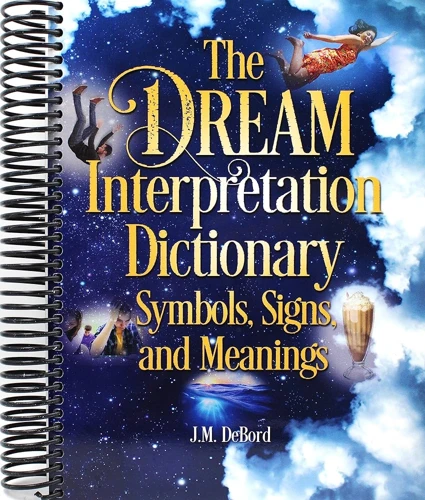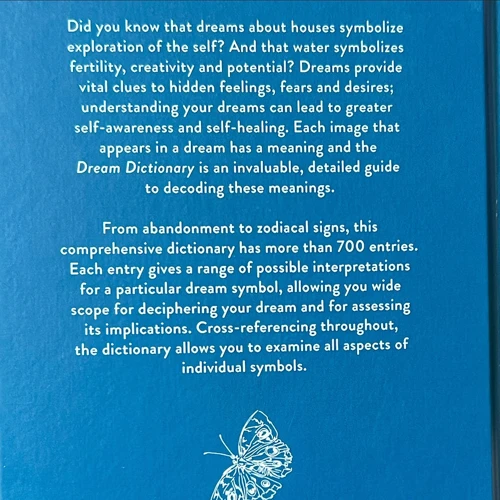Have you ever experienced the frustration of trying to punch in a dream, only to find that your fist moves in slow motion or fails to make an impact? It’s a perplexing phenomenon that many people have encountered, leaving them wondering why this limitation exists. In this article, we’ll delve into the symbolism and meaning behind the inability to punch in dreams, exploring both scientific and psychological perspectives. By understanding the deeper significance of this common dream scenario, we can gain insights into our own emotions, desires, and personal growth. So, let’s embark on this journey of self-exploration and unlock the mysteries of our dream world.
Why Can’t You Punch in Dreams?

The inability to punch in dreams is a peculiar phenomenon that has left many perplexed. Despite our best efforts, our fists seem to move in slow motion or fail to make any impact, creating a frustrating and powerless experience. From a scientific perspective, this could be attributed to the disconnect between the brain’s motor commands and the actual physical movements during REM sleep, the stage where most dreaming occurs. Alternatively, the symbolic interpretation suggests that the inability to punch represents a lack of control and helplessness in our waking lives. It may also be a manifestation of repressed anger and frustration that needs to be addressed. The psychological explanation further delves into the need for emotional release and the role of our subconscious mind in processing and exploring these pent-up emotions. So why can’t you punch in dreams? There may not be a simple answer, as the meaning behind it can vary from person to person. Nevertheless, exploring this phenomenon can provide valuable insights into our own inner struggles and desires.
The Scientific Perspective
In understanding the scientific perspective behind the inability to punch in dreams, we can look to the brain’s functioning during REM sleep. During this stage, the brain sends motor commands to the body, but these commands are not always accurately translated into physical movements. This can result in the sensation of moving in slow motion or being unable to generate the desired force in dreams. Additionally, the brain’s motor cortex, responsible for coordinating voluntary muscle movements, is less active during REM sleep, further contributing to the limited physical control experienced in dreams. The scientific explanation for the inability to punch in dreams lies in the complexities of the brain’s motor functioning during sleep.
The Symbolic Interpretation
The symbolic interpretation of the inability to punch in dreams reveals deeper meanings beyond the physical limitations. It suggests that this dream scenario represents a lack of control and helplessness in our waking lives. Just as our punches fail to land in dreams, we may feel unable to assert ourselves or overcome challenges in our daily experiences. This symbolism can also be linked to repressed anger and frustration, as the inability to punch signifies an inability to express and release these emotions. Exploring these symbolic layers of our dreams can provide valuable insights into our subconscious desires and the areas in our lives where we may need to regain control and find emotional release.
The Psychological Explanation
The psychological explanation behind the inability to punch in dreams delves into the deeper layers of our subconscious mind. This dream experience can be seen as a manifestation of repressed anger and frustration that we may be suppressing in our waking lives. When we are unable to physically release these emotions, they can find their way into our dreams as a symbol of our struggle for control and power. This phenomenon highlights the importance of acknowledging and addressing our underlying emotional state, as well as finding healthy outlets for our pent-up feelings. Understanding the psychological significance of why we can’t punch in dreams can lead to personal growth and self-reflection, allowing us to gain a better understanding of ourselves and our emotional needs. So, the next time you find yourself unable to throw a punch in a dream, take a moment to reflect on the emotions you may be holding back in your waking life.
Understanding the Symbolism

Understanding the symbolism behind the inability to punch in dreams can provide valuable insights into our inner thoughts and emotions. One interpretation suggests that this limitation represents a lack of control and helplessness in our waking lives. By exploring the symbolism further, we may uncover repressed anger and frustration that needs to be addressed and processed. This symbolism could be a reflection of our subconscious mind seeking emotional release and a way to navigate through our struggles. Perhaps the dream serves as a reminder to confront and express our emotions in a healthy manner. When we decode the symbols within our dreams, we can gain a deeper understanding of ourselves and our experiences. So, the next time you find yourself unable to punch in a dream, take a moment to reflect on the underlying meanings and how they may be influencing your waking life.
Lack of Control and Helplessness
The inability to punch in dreams can be seen as a representation of a lack of control and helplessness. When we find ourselves unable to throw a punch, it reflects our feelings of powerlessness in certain aspects of our waking lives. It may signify situations where we feel trapped or unable to assert ourselves. This dream scenario can serve as a reminder to evaluate areas where we may need to regain control or seek assistance. It’s important to recognize that dreams often provide symbolic messages, urging us to confront these feelings of powerlessness and take action to regain our agency and assertiveness. By addressing these underlying emotions, we can empower ourselves and work towards a more fulfilled and confident waking life.
Repressed Anger and Frustration
Repressed anger and frustration can be a significant factor behind the inability to punch in dreams. Our dreams often serve as a reflection of our subconscious mind, and the inability to throw a punch may symbolize suppressed emotions that have not been properly expressed or dealt with in our waking lives. It may be a sign of unresolved conflicts or situations where we feel powerless. This dream scenario could serve as a reminder to address and process these pent-up feelings, seeking healthy outlets for expressing anger and finding resolutions. By confronting and working through repressed anger and frustration, we can achieve a greater sense of emotional balance and inner harmony in both our dream world and our waking lives.
The Need for Emotional Release
The need for emotional release is a key aspect of why we can’t punch in dreams. Dreams serve as a reflection of our subconscious mind, often expressing emotions and desires that may be suppressed in our waking lives. When we are unable to throw a punch in a dream, it may indicate a buildup of repressed anger, frustration, or unresolved conflicts that need to be acknowledged and addressed. By exploring these emotions and finding healthy outlets for emotional release, such as through therapy, journaling, or engaging in physical activities, we can work towards achieving a sense of empowerment and balance in our lives. So, the next time you find yourself unable to punch in a dream, consider it as a message from your subconscious, urging you to embrace your emotions and seek the necessary release.
Exploring the Deeper Meaning

When we dive deeper into the meaning behind the inability to punch in dreams, we uncover a fascinating realm of the subconscious mind. It becomes evident that this dream scenario is not merely a random occurrence, but rather a symbolic representation of various aspects of our inner world. One interpretation suggests that the unconscious mind is at play, using the inability to punch as a metaphor for our suppressed desires and fears. It could be a way for our subconscious to communicate with us, urging us to confront and address the underlying issues that hold us back. Additionally, the inability to punch could be seen as a catalyst for personal growth and self-reflection, prompting us to explore our emotions and seek a greater understanding of ourselves. By exploring the deeper meaning of this symbolic dream experience, we can embark on a journey of self-discovery and gain valuable insights into our own psyche.
The Unconscious Mind at Play
Our dreams provide a fascinating glimpse into the inner workings of our unconscious minds. When it comes to the inability to punch in dreams, it is often seen as a reflection of the unconscious mind at play. While we sleep, our dreams serve as a channel through which our hidden desires, fears, and unresolved emotions can manifest. The inability to punch may symbolize a deeper psychological barrier that our unconscious mind is trying to communicate. It could be a sign that there are underlying issues or unresolved conflicts that need attention. By exploring and interpreting the symbolism in our dreams, we can gain valuable insights into our subconscious and embark on a journey of self-discovery and personal growth. So, the next time you find yourself unable to throw a punch in a dream, take a moment to reflect on what your unconscious mind may be trying to tell you.
Communication from the Subconscious
When it comes to the inability to punch in dreams, one intriguing perspective is that it serves as a form of communication from the subconscious. Dreams are believed to be a gateway to our inner thoughts, emotions, and desires, often revealing aspects of ourselves that may be hidden from our conscious awareness. In this context, the inability to punch could be a symbolic message from our subconscious, urging us to explore and address the underlying emotions or conflicts we may be avoiding in our waking life. By paying attention to our dreams and the recurring theme of being unable to punch, we can gain valuable insights into our subconscious mind and use it as a guide to promote personal growth and self-reflection. So, the next time you find yourself unable to throw a punch in a dream, take a moment to listen to what your subconscious is trying to communicate.
Personal Growth and Self-Reflection
Personal growth and self-reflection play a significant role in the symbolism behind the inability to punch in dreams. When we find ourselves unable to exert control or defend ourselves in our dreams, it can serve as
Subscribe to Our Newsletter
Sign up to receive the latest news and updates.
Practical Tips for Dreaming
When it comes to dreaming, there are practical tips and techniques that can help enhance our dream experiences and promote greater self-awareness. One effective method is practicing lucid dreaming, which involves becoming aware that you are dreaming while still within the dream itself. This awareness allows you to take control of the dream narrative and actively participate in shaping the dream’s outcome. Techniques such as reality checks, where you regularly question your surroundings to determine if you are dreaming, can aid in developing this skill. Another valuable practice is journaling and interpretation. Keeping a dream journal by your bedside and recording your dreams as soon as you wake up can help in remembering and analyzing dream patterns and symbols. This process can lead to a deeper understanding of your own subconscious desires and emotions. Embracing the journey of dreaming means embracing the wealth of wisdom and self-discovery that lies within our dreams. So, equip yourself with these practical tips as you embark on your own dreaming adventure. Link to dream of watering plants.
Lucid Dreaming Techniques
- Reality checks: Performing reality checks throughout the day can train your mind to question whether you are dreaming or awake. This habit can carry over into your dreams, allowing you to become aware and conscious within them.
- Keep a dream journal: Recording your dreams in a journal helps improve dream recall and aids in recognizing recurring themes or patterns. This can enhance your awareness during dreams and make it easier to achieve lucidity.
- Mindfulness and meditation: Practicing mindfulness and meditation techniques during wakeful hours can enhance your ability to stay present and focused in your dreams. This can help you recognize when you are dreaming and trigger lucidity.
- Reality testing: While dreaming, question your environment and perform reality tests such as looking at a clock or trying to read a piece of text. In dreams, these details often appear distorted or constantly changing, signaling that you are in a dream state.
- Wake back to bed technique: Set an alarm to wake up after a few hours of sleeping, then go back to sleep with the intention of lucid dreaming. This method takes advantage of the increased likelihood of experiencing vivid dreams during the later stages of sleep.
Journaling and Interpretation
Journaling and interpretation play key roles in unraveling the meaning behind our dreams, including the mysterious inability to punch. Keeping a dream journal allows you to record your dreams immediately upon waking, capturing the details and emotions while they are still fresh. This practice helps to establish a connection between the conscious and unconscious mind, aiding in the identification of recurring themes and symbols. By revisiting your dream journal over time, you may start to notice patterns and uncover hidden messages that can shed light on the symbolism behind not being able to punch in dreams. Additionally, seeking the guidance of a professional dream interpreter or joining a dream analysis group can provide valuable insights and alternative perspectives on your dreams. Taking the time to engage in the process of journaling and interpretation can ultimately lead to a deeper understanding of your dreams and yourself.
Embracing the Journey
Embracing the journey of dreaming means recognizing the value and significance of our dreams. It involves accepting that dreams are not merely random images or events, but rather a window into our subconscious mind. By keeping a dream journal and actively interpreting our dreams, we can gain deeper insights into ourselves and our inner workings. Embracing the journey also means being open to the lessons and messages our dreams may be trying to convey. Dreams can be a source of inspiration, guidance, and self-discovery. So, let’s embrace the journey of dreaming and uncover the hidden treasures that lie within our subconscious minds.
Conclusion
In conclusion, the inability to punch in dreams holds a deeper symbolic and psychological meaning. While there may be scientific explanations for this phenomenon, such as the disconnect between the brain’s motor commands during REM sleep, it is the symbolism that offers intriguing insights. The lack of control and helplessness represented by the inability to punch reflects the challenges we face in our waking lives. It may also signify repressed anger and frustration that needs to be addressed. By exploring the symbolism and meaning behind this dream scenario, we can gain a better understanding of our emotions and desires, leading to personal growth and self-reflection. So, embrace the journey of dreaming, journaling, and interpreting these experiences, as they hold the potential to unlock the mysteries of our unconscious mind.
Frequently Asked Questions
Why do dreams feel so real?
Dreams can feel incredibly vivid and lifelike because they arise from the same neurological processes that generate our waking experiences. During REM sleep, the brain becomes highly active, and the sensory areas responsible for sight, sound, and touch are activated, creating a convincing sense of reality in our dreams.
Why do we forget our dreams?
Forgetting dreams is a common occurrence due to the complex nature of memory consolidation. As we wake up, our brain quickly shifts from the dream state to wakefulness, causing the details of the dream to fade from memory. Additionally, dreams often occur during the rapid eye movement (REM) stage of sleep, when the brain is less inclined to store memories.
Can dreams predict the future?
While some people believe that dreams can be prophetic, it’s important to approach such claims with skepticism. Dreams are more likely a product of our subconscious thoughts and emotions, rather than glimpses into the future. However, dreams can serve as a source of inspiration or intuition, guiding us in certain directions.
Why do dreams sometimes recur?
Recurring dreams often reflect unresolved emotions or unresolved issues in our lives. They can be a way for our subconscious mind to draw attention to something that needs addressing, offering an opportunity for self-reflection and personal growth.
Are nightmares a sign of underlying issues?
Nightmares can indicate underlying emotional or psychological issues, such as trauma, anxiety, or stress. They often reflect our fears, insecurities, or unresolved conflicts. Exploring the themes and emotions in nightmares can be a valuable tool for understanding and addressing these underlying issues.
Why do we have lucid dreams?
Lucid dreams occur when we become aware that we are dreaming while still in the dream state. This awareness allows us to have some control over our actions and surroundings within the dream. Lucid dreaming can be a fascinating and empowering experience, offering opportunities for creativity, problem-solving, and exploration.
Can dreams help with problem-solving?
Dreams have the potential to help with problem-solving by providing insights and alternative perspectives that may not be accessible in our waking state. The subconscious mind can work through complex issues and present new ideas or solutions in the symbolic language of dreams.
Why do dreams sometimes reflect our fears?
Fears are a natural part of the human experience, and dreams often serve as a way for our subconscious mind to process and confront these fears. By exploring and understanding the symbolic representations of our fears in dreams, we can work towards overcoming them in our waking lives.
Can dreams be influenced by outside factors?
External factors such as our daily experiences, emotions, and even our sleeping environment can influence the content and themes of our dreams. Stress, medications, and substances like alcohol or nicotine can also impact the nature of our dreams, altering their vividness or intensity.
Why are dreams often filled with symbolism?
Symbols play a significant role in dreams because they offer a way for the unconscious mind to communicate complex ideas or emotions. Symbols in dreams can be personal and subjective, carrying different meanings for each individual. Interpretation of these symbols allows for a deeper understanding of ourselves and our subconscious desires.










